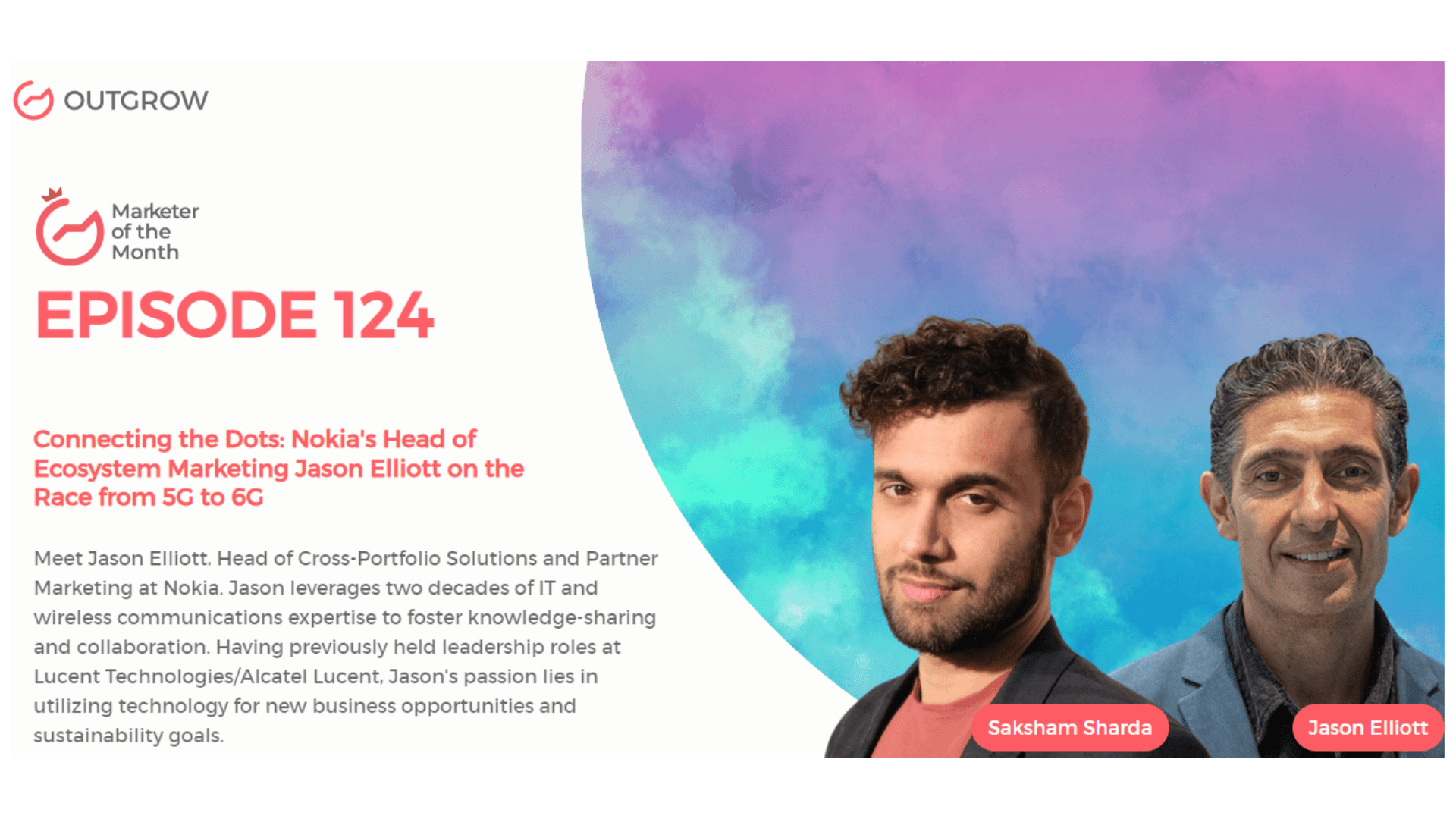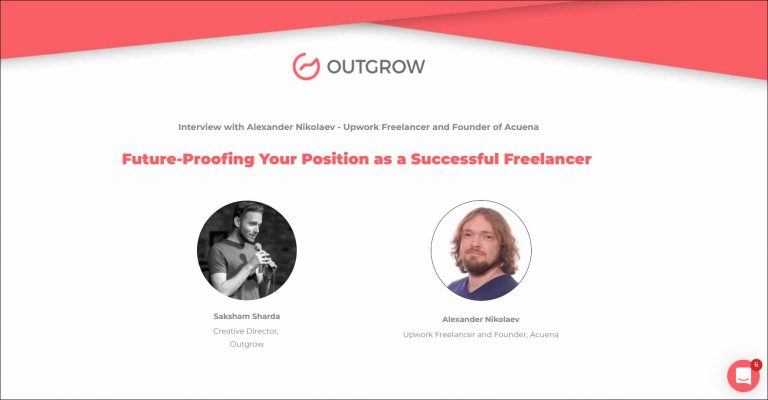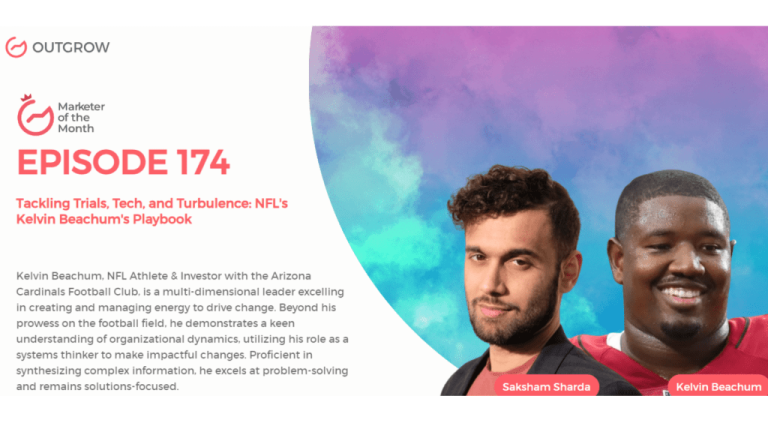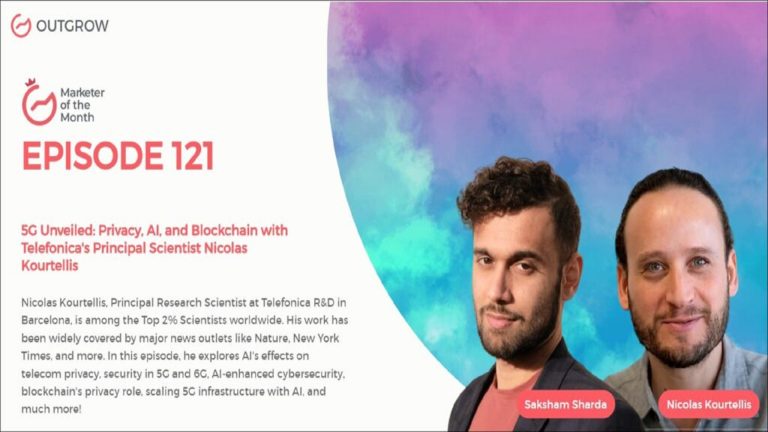EPISODE 124: Marketer of the Month Podcast with Jason Elliott
Table of Contents
Hey there! Welcome to the Marketer Of The Month blog!
We recently interviewed Jason Elliott for our monthly podcast – ‘Marketer of the Month’! We had some amazing insightful conversations with Jason and here’s what we discussed about-
1. Next-Gen Networking: transition from 5G to 6G, emphasizing 5G’s role in digitizing industries and introducing network sensing in 6G.
2. Network’s role in hastening digitalization across sectors and achieving Sustainable Development Goals (SDGs) via enhanced efficiency.
3. Collaboration’s significance in driving innovation, with partnerships spanning cloud providers, experts, research, and startups.
4. Addressing prioritization dilemmas and the importance of transparent communication and trust in ongoing partnerships.
5. The need for future-proofing networks, covering advancements in both wireless and fixed networks, and anticipating the impacts of the metaverse and VR devices.
6. 6G’s sensing capabilities as they bridge the physical and digital realms.
About our host:
Dr. Saksham Sharda is the Chief Information Officer at Outgrow.co. He specializes in data collection, analysis, filtering, and transfer by means of widgets and applets. Interactive, cultural, and trending widgets designed by him have been featured on TrendHunter, Alibaba, ProductHunt, New York Marketing Association, FactoryBerlin, Digimarcon Silicon Valley, and at The European Affiliate Summit.
About our guest:
Meet Jason Elliott, Head of Cross-Portfolio Solutions and Partner Marketing at Nokia. Jason leverages two decades of IT and wireless communications expertise to foster knowledge-sharing and collaboration. Having previously held leadership roles at Lucent Technologies/Alcatel Lucent, Jason’s passion lies in utilizing technology for new business opportunities and sustainability goals.
Connecting the Dots: Nokia’s Head of Ecosystem Marketing Jason Elliott on the Race from 5G to 6G
The Intro!
Saksham Sharda: Hi, everyone. Welcome to another episode of Outgrow’s Marketer of the Month. I’m your host, Dr. Saksham Sharda, and I’m the creative director at Outgrow. co. And for this month we are going to interview Jason Elliott, who is the head of Cross-Portfolio Solutions and Partner Marketing at Nokia.
Jason Elliott: Great to be here. Thank you.
Don’t have time to read? No problem, just watch the Podcast!
Or you can just listen to it on Spotify!
The Rapid Fire Round!
Saksham Sharda: Okay, so we’re gonna start with the rapid-fire round. The first question is, at what age do you want to retire?
Jason Elliott: When I need to just stay on the beach.
Saksham Sharda: What’s your favorite mobile app?
Jason Elliott: LinkedIn.
Saksham Sharda: How long does it take you to get ready in the mornings?
Jason Elliott: Depending on the day could range from anything from 30 minutes to an hour.
Saksham Sharda: Most embarrassing moments of your life.
Jason Elliott: I was at a dinner party one time, and I was popping some ice cubes and it popped it into the cake that was being used for the celebration.
Saksham Sharda: Mountains or beaches?
Jason Elliott: Beaches.
Saksham Sharda: What’s the most useful mobile feature you can’t live without?
Jason Elliott: Calendaring.
Saksham Sharda: Favorite color?
Jason Elliott: Blue.
Saksham Sharda: What time of day are you most inspired?
Jason Elliott: Evening.
Saksham Sharda: How many hours of sleep can you survive on?
Jason Elliott: Five.
Saksham Sharda: Fill in the blank: An upcoming marketing trend is______.
Jason Elliott: Using influencers.
Saksham Sharda: The city in which the best kiss of your life happened?
Jason Elliott: Atlanta.
Saksham Sharda: Pick one Android or Apple.
Jason Elliott: Apple.
Saksham Sharda: The biggest mistake of your career?
Jason Elliott: Not taking advantage of opportunities that are given to me.
Saksham Sharda: How do you relax?
Jason Elliott: Listen to music.
Saksham Sharda: How many cups of coffee do you drink per day?
Jason Elliott: Three to four.
Saksham Sharda: A habit of yours that you hate?
Jason Elliott: Yeah, pass.
Saksham Sharda: The most valuable skill you’ve learned in life.
Jason Elliott: Talking to people is the most important thing you can do, and listening to them, more importantly.
Saksham Sharda: Cities or countryside?
Jason Elliott: Cities.
Saksham Sharda: And the last one is your favorite Netflix show?
Jason Elliott: Drive to survive.
The Big Questions!
Saksham Sharda: Okay. All right. So that’s the end of the rapid fire. And now we’re gonna go on to the longer questions, and these you can answer with as much ease and time. Okay, so the first one is, as we move from 5G to 6G and 5G TV, what kind of technology innovations can we expect to see in the networking space? And how do you see these innovations impacting businesses and individuals in the years to come?
Jason Elliott: Well, 5G was designed not just for our consumer mobile broadband services. So yes, it does provide higher peak throughputs and more capacity in the network. And it’s designed for physical industries to digitize their business processes and their operational technology. So now we have reduced latency or delay in the network, much higher reliability, and better security. Many businesses, such as automotive and manufacturing, energy, and utilities, are starting to use 5g and private cellular networks to be able to digitize and transform their businesses much more than beyond IOT, but being able to control machines in real-time. And that’s how we see 5G and 5G advanced advancing kind of much more to do with enterprises and the industrial environment.
Saksham Sharda: And how about 6G?
Jason Elliott: And as we move into 6G, that’s the foundation really as we start to think about. Traditionally, as we’ve gone from 2,3,4, and 5G, it’s been about data communication. So transmitting data between devices and the network 6G will be able to do that too. And yes, it will have much more capacity. But it comes with an amazingly incredible feature. We call this network sensing. So instead of using traditional technologies, like Lidar and infrared, to sense the physical world around us, radio transmissions will be able to detect our physical presence. So the network has a sixth sense or is giving us a digital sixth sense. And that’s something really exciting we’re looking forward to in the 2030 timeframe.
Saksham Sharda: So the COVID-19 pandemic has highlighted the need for digitalization in various industries. How can we accelerate this process? And what role do you see networks playing in achieving the ESG goals?
Jason Elliott: Well, the exponential potential of networks is incredible. We’ve seen, even with the enterprise customers we have today, and we’re service provider customers, how enterprises are transforming their operations today, so many enterprises are not looking for technology for technology’s sake, they need to understand how it’s going to improve their business overall. So for many industrial players and physical industries, this is all about productivity, safety, efficiency, and resilience of their business operations. And when we think about connectivity, particularly private cellular networks, being able to connect everything on a manufacturing line, for example, or everything in a physical industry like a mine, you can see all of the operations in real time. So you can make sure that the machines are operating with the most efficient possible profile, but we do predictive maintenance, so they don’t break down. So you’ve got continuous, reliable operations. And very important as well, as these machines operate more efficiently. They’re using less raw materials. So again, this helps to think about how we can stabilize the use of all the precious assets and minerals that we have within the earth in terms of using those raw materials. And that helps in the overall goals for sustainability in the environment as well.
Saksham Sharda: Can you share some examples of successful collaborations in the networking industry? And how can businesses leverage collaboration to drive growth and success?
Jason Elliott: Yeah, collaboration is really important to build new types of solutions and business models. And I think when people look at Nokia it’s a b2b technology innovation leader where networks meet the cloud, to realize the full potential of digital, we have to partner with all different types of companies. So that could be very large companies in the cloud space. So all the hyperscalers could be companies that have specific expertise in different industries. So people that know to manufacture very well or automotive very well. And then we also have research partners as well. So we work a lot in industry forums, and we work with academic institutions, as well. We also work with our venture arm and NGP capital, which invests in startups as well. So there are lots of different types of frameworks to engage in. It’s very important because we believe that innovation can come from anywhere, and collaboration is key to accelerating both innovations and time to value and time to market.
Saksham Sharda: So what does your typical day at your organization look like?
Jason Elliott: A typical day is a lot of meetings and a lot of coordination. But it’s also time to think about how our customers are going to be able to benefit from our technology, and what that technology means to them as they want to grow their business. And I think for me, as well, and professionally, it’s very important to understand how our technology can have a positive impact not only on our customers but also on society as a whole and reduce the impact that we have on the planet. So we need to think about the potential that networks can provide so that we can bring people to collaborate and use that for the benefit of both people and the planet overall.
Saksham Sharda: And could you give us one example of a tough day or a tough decision or tough meeting your activities this year? So like a story about that?
Jason Elliott: Yeah, I think one of the toughest things is kind of trying to decide on certain priorities because we want to do everything, and we all have limited resources, and we will have time. So I think the important thing is to have those tough conversations about what matters to both companies. So the company, you know, your partnership is built on that trust. And trust is extremely important. So actually having to break down those barriers, and really kind of get to understand what your partner company wants to do. Making sure you’re very clear about the goals from the outset is extremely important but those are some of the toughest conversations you have. But they’re extremely worthwhile because it sets the tone for the engagement with the business going forward.
Saksham Sharda: So with the exponential growth of data traffic and the increasing demand for high-speed connectivity, how can we ensure that networks are future-ready and able to meet these demands? So what are some of the key challenges that need to be overcome in order to achieve this?
Jason Elliott: Well, I think we’ve done a great job in addressing mobile broadband capacity both in the wireless space with 5G, and 5G advanced coming up. And then obviously, like 6G, also in fixed networks, as well, people forget this, but obviously, homes and businesses are connected on fixed lines as well. So we’re making great strides in the optical space as well. We’ve just launched a new product now that will be a new chipset in a product that will allow you to go up to 2.4 terabits per second. So we’re building very high performance, capacity, and network to scale for those future applications and services that we see in the network. And then also thinking about all the different types of devices that we will have in the network. So we think about smartphones and tablets, that now we’re going to have cars. We’re going to have sensors everywhere in bridges, buildings, and industrial manufacturing equipment. And then, of course, we’re going to have new types of devices on us, everything from VR AR type headsets, which we see enterprises adopting quite early for the future, as we start to build towards what we think about the metaverse as well.
Saksham Sharda: So which of these technologies personally excites you the most?
Jason Elliott: I think, probably looking very far forward into 6G, the sensing capability is incredible. Having a digital Sixth Sense could not only benefit, obviously, just from a communications perspective, but kind of think more about the physical and the digital worlds together. So blending of the physical and digital worlds happens every generation of wireless that we go through. I think 6G will be a huge pinnacle point eventually. But we’ve got a lot of work to do between now and then. And we continue to advance those technologies to get to that point in time.
Saksham Sharda: The last question for you is more of a personal time. What would you be doing in your life if not this right now?
Jason Elliott: I would be a pilot. I love flying and I enjoy flying right now, even for business, even for leisure. And I love all types of forms of flight, helicopters, fixed-wing aircraft, and even hot air balloons, and gliders I’ve been in as well. So yes, maybe someday I can train to be a pilot.
Let’s Conclude!
Saksham Sharda: Thanks, everyone for joining us for this month’s episode of Outgrow’s Marketer of the Month. That was Jason Elliott, who is the head of Cross-Portfolio Solutions and Partner Marketing at Nokia.
Jason Elliott: Pleasure. Thanks for having me.
Saksham Sharda: Check out the website for more details and we’ll see you once again next month with another marketer of the month.

Muskan is a Marketing Analyst at Outgrow. She is working on multiple areas of marketing. On her days off though, she loves exploring new cafes, drinking coffee, and catching up with friends.








